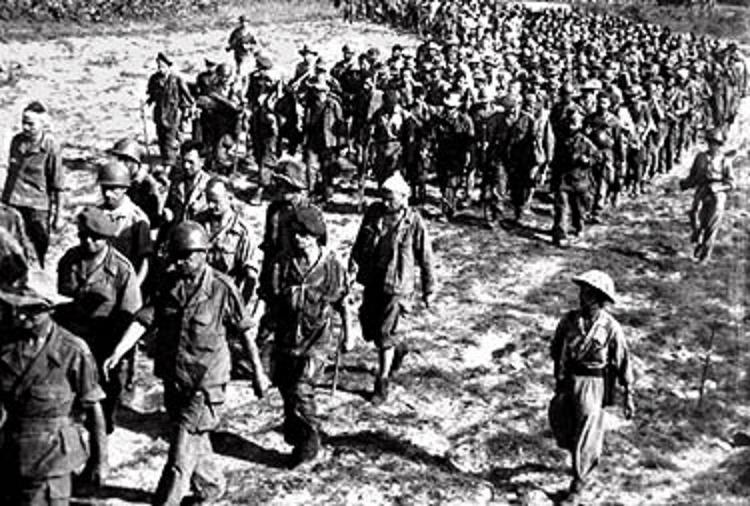SESSION 08 | LOYALTY, THE INDIVIDUAL, AND THE ORGANIZATION
What does "loyalty" mean to you, and how may it be expressed in terms of your role within an organization?
From 50 years ago
back to top
What does it mean to be "loyal"?

Many an officer who shipped out to Saigon carried with him a dog-eared copy of “Street Without Joy: Indochina at War, 1946–1954,” published in 1961. In early 1968, when it seemed possible that American forces could be in for a disastrous siege at Khe Sanh, officers scrambled to get their hands on “Hell in a Very Small Place,” Fall’s searing account of the siege at Dien Bien Phu, 14 years earlier, in which the French suffered the decisive loss in their own struggle to control the country.
Bernard Fall: The Man Who Knew the War | Fredrik Logevall
back to top
You don't have to watch this unless you wish to, but we might touch upon some aspects of it in conversation
The French Foreign Legion celebrates the battle of Camaron Sidi bel Abbès, 1957.
If you do watch it, ponder where it was filmed, what was about to happen in the short years thereafter, and whether loyalty is always a good thing.
back to top
things we'll talk about
- why is loyalty in members a valuable commodity for organizations?
- what kinds of things would motivate you to be loyal to an organization? what would it have to do to win your loyalty?
- what do you think about the increase in turnover of IT professionals?
- does the idea of working at several companies over the course of your career worry you?
- would you prefer it to working at one company over most of your professional life?
an excerpt from Fall's Street without Joy

back to top
something to take away
a minha casa
Cristina Branco, born in 1972, did not start out to be a fado singer, but she has studied the poems from which major fado lyrics are taken and continues to work on her fado repertory, accompanied by Custódio Castelo on guitar and as composer. From the Last.fm entry ...
She grew up far from the fado houses of Lisbon and nothing suggested that she was predestined for the fado. Like almost all young Portuguese born after the revolution of 1974, she was interested in folk music, jazz, blues, bossa nova but not in fado. She regarded it as a genre for a different generation. This lasted until her 18th birthday, when her grandfather gave her the album Rara e Inédita by Amália Rodrigues. Suddenly, Cristina Branco discovered all the emotions that the genre could offer in the close connections that arose among voice, poetry and music. The amateur singer - then studying communication sciences and still full of her ambition to become a journalist - began to develop her vocal technique and to take her new vocation seriously.